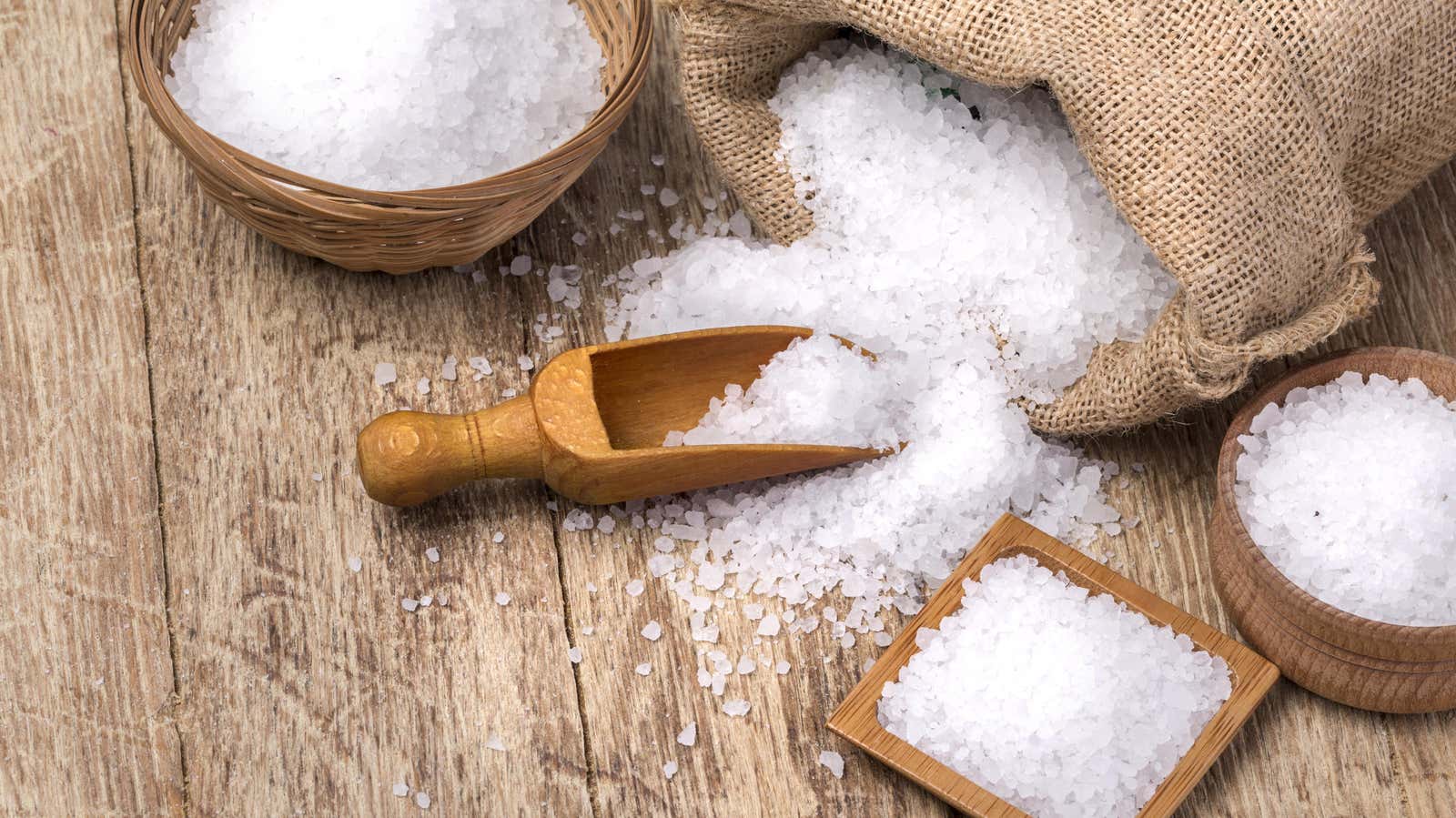What Your Salt Cravings Can Tell You

Salt is an essential nutrient. Our bodies require a small amount of sodium every day to maintain proper fluid balance and for our nerves and muscles to function properly. Throughout human history, we’ve generally found it difficult to get enough salt, and craving for it has been helpful as a way to ensure we get enough.
However, while the recommended daily intake is 2,300 mg of sodium per day, most of us get more, primarily from processed foods. When something as innocent as a piece of bread or a bowl of breakfast cereal can contain up to 200 mg of sodium, it builds up quickly.
While eating salty foods is certainly normal, there are times when our cravings could be a sign that something else is happening. If you find yourself craving salty foods or reaching for the salt shaker more often than usual, here are a few things that can stimulate your cravings.
Dehydration
One of the main functions of salt is to maintain the correct fluid balance. When there is too much water in our body, our kidneys will get rid of it in urine, and if there is not enough water in our body, for example, when we are dehydrated, then our kidneys will cling to water. our bodies by decreasing the amount that is excreted.
Sodium, which is a solute, helps our body retain more water. If we are dehydrated, our body wants to retain as much water as possible, for which it needs more salt. Other signs of dehydration include dizziness, headaches, muscle cramps, intense thirst, and cold clammy skin.
Electrolyte imbalance
Salt is an electrolyte that helps keep our bodies hydrated. If this balance is upset, resulting in lower-than-normal sodium concentrations in our body, it will make us crave salt.
Signs of an electrolyte imbalance include headache, fatigue, nausea or vomiting, confusion and / or irritability. In extreme cases, it can even cause seizures.
You sweated a lot
This is due to salt cravings caused by dehydration or electrolyte imbalances. If you’ve been exercising a lot that causes you to sweat heavily, then you are losing electrolytes, including sodium, along with all that sweating.
On average, we lose about 500 milligrams of sodium for every pound of sweat , although this number varies greatly from person to person. For those spending half an hour at the gym or taking a leisurely stroll around the area, this won’t matter much. However, if you’re doing long, intense workouts that sweat profusely, this can make a difference, especially if you have a particularly salty sweater. (If white salt stains often appear on your workout clothes, this is a sign that you are sweating more salt than the average person.)
To understand how much sweat you are losing, weigh yourself before and after your workout.
Addison’s disease
Addison’s disease occurs when our bodies don’t produce enough hormones . It can develop as a result of an autoimmune disease, tuberculosis, certain fungal or bacterial infections, problems with the pituitary gland, or if you have recently stopped taking long-term steroid medications.
One of the functions of these hormones is to regulate blood pressure. If this happens, our blood pressure may drop, which prompts us to crave salt as a way to fix it. Addison’s disease can be quite serious, so if you also experience symptoms such as dizziness, fatigue, weight loss, weakness, headaches, nausea and / or headaches in addition to salt cravings, you should see your doctor.
Stress
When we are under stress, we tend to crave comfortable food. For many of us, this means salty food, be it chips, French fries, or a large slice of hot, greasy pizza. There is also some evidence that our bodies produce less cortisol when sodium levels rise , so this may also be your body’s way of trying to cope.
Premenstrual Syndrome (PMS)
In addition to mood swings, bloating, constipation, and other fun PMS-related things, food cravings can be a symptom. For many of us, this means salty foods.
Pregnancy
If you experienced severe morning (or afternoon) sickness during pregnancy, all this vomiting can lead to dehydration. As a compensating mechanism, your body may crave salt to correct this balance. Plus, there is food cravings, which for many of us means salty foods.